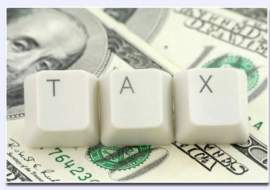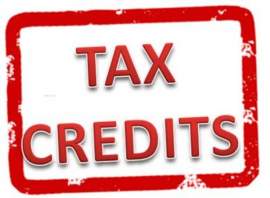
Criticisms of Capital Gain Taxes

The capital gain tax can be applied to any profit made by selling almost any personal item. While there are obvious capital gains, such as the profit from the sale of a home, there are some gains that are not as obvious. For example, an individual that has a garage sale and makes money from gifts they have received, such as a softball bat, would be required to report that income under the capital gain tax.
There are also capital gains taxes imposed on stocks and bonds, and other similar investments. However, capital gains and losses can get rather confusing. Although many items can be counted toward a profit, or capital gain, the list of capital losses is significantly shorter. Profit from the sale of items like homes can be counted under capitals gains and losses. However, profit from the sale of items such as vehicles can only be counted under capital gains.
Many taxpayers are perplexed by the list of items that are considered under both capital gains and losses. There is controversy as to why the government is able to consider items as capital gains, that can not be consider under capital losses for the taxpayer. For some items, the distinction is clear. The taxpayer should expect the value of certain items to depreciate. Most vehicles, are likely to be worth less money in the long term.
Conversely, if a vehicle is sold for more that what the taxpayer paid, they are expected to pay a capital gain tax on the sale of that item. Many taxpayers believe that items should be included on both capital gains and losses, or under neither. In other words, taxpayers are outraged that the government is able to make money of off profit when taxpayers are not able to deduct those same items as a capital loss.
The only way that a taxpayer can completely avoid the capital gain tax, is to never sell any items for a profit. In some ways, the capital gain tax in considered a volunteer tax, because tax payers are not required to sell items for a profit. There is also controversy because individuals are forced to pay a flat fee on income, regardless of the rate of inflation. For example, a home that was purchased twenty years ago, has certainly gone up in value, mostly due to inflation. Yet, the rate of inflation is not considered under the rules that govern taxes for capital gains and losses.
Like other taxes, controversy surrounds the capital gain tax. The rules can be confusing when determining taxes on capital gains and losses. The rate of inflation is not taken into account when taxpayers make a profit from an investment, no matter the length of the investment.
An individual that has had a home for fifty years, and sells that home, is likely to make a large profit. The individual would be expected to consider that profit under their capital gain taxes. In order to make the rules regarding capital gain taxes fair, the government needs to take two factors into account. The rate of inflation should be considered under tax rules. Items that are considered as a capital gain, should also be allowed to be considered under a capital loss, in order to make the tax rules fair for taxpayers.
NEXT: Current Rates on Capital Gain Taxes





















